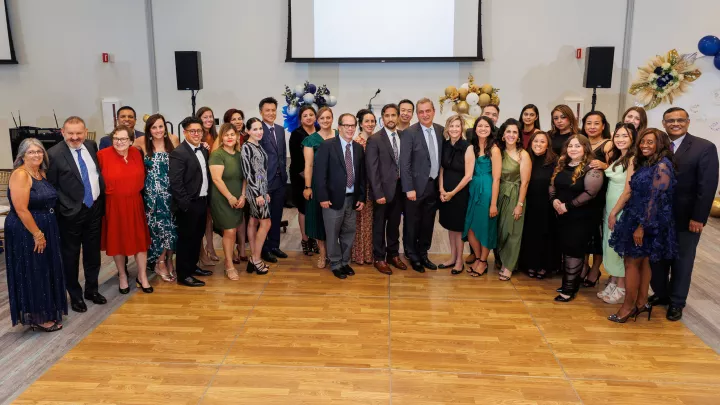Intestinal Rehabilitation and Nutrition Support Program
Our program is focused on helping infants, children and adolescents with complex nutritional problems, particularly those related to gastrointestinal disorders. The care we provide is multidisciplinary and family-centered. Our team utilizes the skills of experienced gastroenterologists, surgeons, nurses, dietitians, social workers and occupational therapists to work with patients and their families.
We have the largest program for pediatric home parenteral nutrition on the west coast. We continue to care for patients when they wean from parenteral nutrition to manage their nutritional and gastrointestinal needs. Our multidisciplinary team also helps families addresses feeding problems interfering with growth and the development of normal feeding behaviors for patients with intestinal failure and others with complex medical or feeding-specific issues.
Many of our patients have experienced intestinal failure, a condition in which the bowel is unable to absorb the fluids, energy and nutrients needed for weight maintenance and growth. Such children are dependent, for a variable period of time, on parenteral (IV) nutrition. The most common cause of intestinal failure is short bowel syndrome, where a large part of the intestinal has been removed surgically to treat a congenital or acquired bowel problem. Conditions commonly leading to short bowel syndrome include abdominal wall defects (gastroschisis, omphalocoele), congenital intestinal atresias (blockages), volvulus (twisting of the bowel on itself) and necrotizing enterocolitis, a condition usually related to premature birth.
Comprehensive Care
Members of the same treatment team see patients both in the inpatient hospital for management or consultation and in our outpatient clinics for ongoing care or consultation. This allows a smooth transition between inpatient and outpatient care and allows families to build supportive relationships with care team members. The involvement and preferences of families are central to our approach in managing complex medical problems. Families are involved in inpatient rounds and are key members of the outpatient care team, both in clinic and via phone contact with staff members. The multi-disciplinary nature of the team allows us to address their medical conditions, feeding and nutritional needs, parent and family education, attention to life-saving devices such as intravenous catheters and feeding tubes, and the social aspects of living with a child with special medical needs.
Commonly Treated Disorders
- Intestinal Failure
- Short Bowel Syndrome
- Motility-related Intestinal Failure
- Congenital Enteropathies
- Abdominal Wall Defects
- Patients Requiring Home Parenteral Nutrition
- Hospital Malnutrition
- Failure To Thrive
- Feeding Problems
Clinical Trials and Research
- Short bowel registry observational study
- Trial of intravenous fish oil for intestinal failure associated liver disease
- Trials of investigational drugs for accelerating bowel growth in short bowel syndrome
- Feeding problems in children with short bowel syndrome
- Risk factors of Intestinal Failure Associated Liver Disease
- New diagnostic approaches to Small bowel Bacterial Overgrowth
- Risk factors associated with catheter associated venous thrombosis
What to Expect During your First Visit
Patients may be initially seen after referral for inpatient services or in the clinic setting. In the clinic, most patients will meet with several members of our multidisciplinary program, based on the underlying medical problem. Please plan to arrive 15 minutes before your appointment time and expect the initial assessment to take between 1 and 2 hours. We look forward to meeting you.


